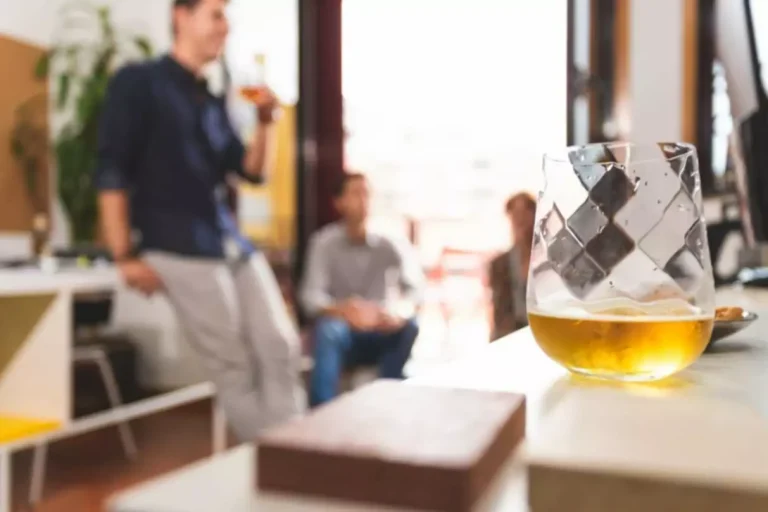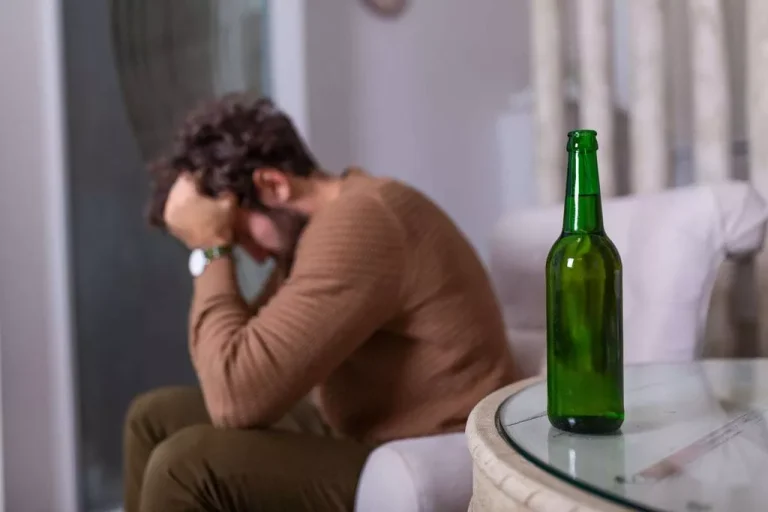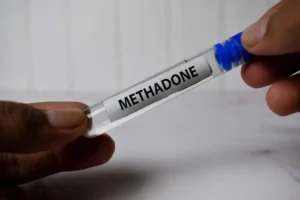
It may make you feel drowsy and fall asleep quickly—but later in the night it messes with your sleep patterns as it works through your system. Since alcohol is a depressant, it can throw your sleep cycle off balance by slowing down your nervous system. As your nervous system speeds back up once the alcohol exits your system, you may experience sleep disruption and wake up more throughout the night.

Stand back and ask: ‘How does drinking serve me?’
For example, some people choose to write a list of reasons why they want to stop drinking alcohol, and revisit the list to remind themselves after a relapse. You may want to speak with a loved one or therapist about a strategy taking a break from alcohol to prevent relapses from happening. Talk to your doctor or a drug treatment specialist about what to expect as you experience alcohol withdrawal. Ask your doctor whether any medications may help in the process.
- “If you find that you are trying to stop repeatedly without success, getting professional help from a therapist or outpatient program may give you the best chance of wide-reaching recovery,” adds Mehta.
- Whenever you decide to take a break from alcohol, whether it be during a designated sober month or any other time of the year, the NIAAA website, Rethinking Drinking, has strategies that can help you stop drinking.
- Hello Sunday Morning has a large online support community of more than 100,000 people, and offers a range of resources to help people who want to cut down or quit drinking.
- Chronic dehydration can affect how you feel, how your skin looks, your hair quality and your overall well-being.
Will I experience withdrawal symptoms if I stop drinking?
- Physical symptoms will be much better by a week after stopping for most people.
- Many people who use alcohol heavily for a prolonged period often don’t even recognize the perpetual fog that alcohol creates.
- Did you know alcohol use can actually make you more prone to getting sick by undermining the immune system?
- When you’re having a good time, you find it hard to stop, especially in the company of friends having the same amount.
- If you’re experiencing severe symptoms of alcohol withdrawal, be sure to talk to a healthcare provider.
Encourage your friends to meet up in the morning for breakfast, for example, or suggest healthy activities where alcohol is less likely to be present. Events like FebFast can encourage and support these good intentions. But around 30% of people who start FebFast don’t get through the whole month alcohol-free.
- Here are six ways to make that happen — and, holidays or not, you don’t need to drink to celebrate.
- These symptoms may start a few hours or a few days after your last drink of alcohol.
- The effects of alcohol can even make you abusive or cause you to harm others emotionally.
- As your nervous system speeds back up once the alcohol exits your system, you may experience sleep disruption and wake up more throughout the night.
Increased Mental Clarity

It’s possible to develop a better relationship with alcohol and make more mindful, informed choices about drinking without total sobriety. When your body breaks down alcohol, your liver has to clear the metabolic byproducts, Dr. Leavey says. “As a result, the liver has to work harder and longer to recover from the effects of alcohol,” he says. Alcohol can also cause inflammation in your liver, which keeps it from doing its job well—which is clearing out toxins from your body and turning fat into energy to keep you fueled, Dr. Galligan says. According to the Dietary Guidelines for Americans, alcohol should be consumed in moderation — up to one drink per day for women and up to two drinks per day for men.
Different Drinking Levels
Take the free Drinking Check to understand more about how much alcohol you’re drinking and to receive personalised results and guidance on how to cut back if you need to. But evaluations show, regardless of successful completion, taking up a month-long challenge to quit alcohol is linked to reductions in alcohol consumption six months and up to a year later. In our alcohol-centric society, it sometimes feels uncomfortable when everyone around you is drinking and your own hands are empty. Choose a healthier alternative like sparkling water, soft drink or a mocktail. You might hear psychologists refer to something called the “rule violation effect”.
That might explain why you can have a fitful night of tossing and turning after you’ve been out drinking. If you add in costs of drinking in social settings at restaurants, bars, and clubs, the amount might be more. These withdrawal symptoms occur because of overactivity of the central and autonomic nervous systems.

- So, SELF connected with experts to find out what actually happens to your body when you go sober.
- It can make your family and friends feel as if you are choosing an addiction over them and cause you to act in ways that are destructive to relationships.
- The “sober curious” or “sober sometimes” movement started as a challenge for those who felt they’d partied a little too hard over New Year’s weekend.
- But drinking less can help you reverse your tolerance to alcohol as well as reduce your risk of serious health harm.
- By the end of your first month of sobriety, the benefits of better sleep, improved hydration, spending less and decreased calorie intake will be growing.
- When you begin to rethink your relationship with alcohol, your friends and family may not be on board — especially if those are some of the people that you used to drink with.
So I think the very first step here is to simply assess your relationship with alcohol. You know, write down these things in a journal or just in the memo section of your phone. Write down how much to drink, when you drink and – how about this question – why do you drink? New draft Australian alcohol guidelines recommend healthy men and women should consume no more than ten standard drinks per week and no more than four standard drinks on any one day.

Don’t keep alcohol in your house. Having no alcohol at home can help limit your drinking.
They will become less intense, and symptoms will disappear one by one. Physical symptoms will be much better by a week after stopping for most people. In more than 30 years of sobriety, it’s the only time I’ve had an alcoholic drink in my hand, bringing it toward my lips. As well as existing non-alcoholic https://ecosoberhouse.com/ beer and wine, a range of non-alcoholic spirits is also emerging in the market. You could ask for it to be served in a spirit or cocktail glass – you might be less likely to be asked why you’re not drinking. It can be helpful to make a plan ahead of time for how to handle a relapse.

But a full detox is needed for the most benefit, and how much time that takes depends on a variety of personal factors. Whether it’s enjoying a glass of wine with dinner or having a few drinks on the weekend, alcohol can easily become ingrained in your lifestyle. A 90-day break from alcohol offers the opportunity to step back and break the cycle of habitual drinking.